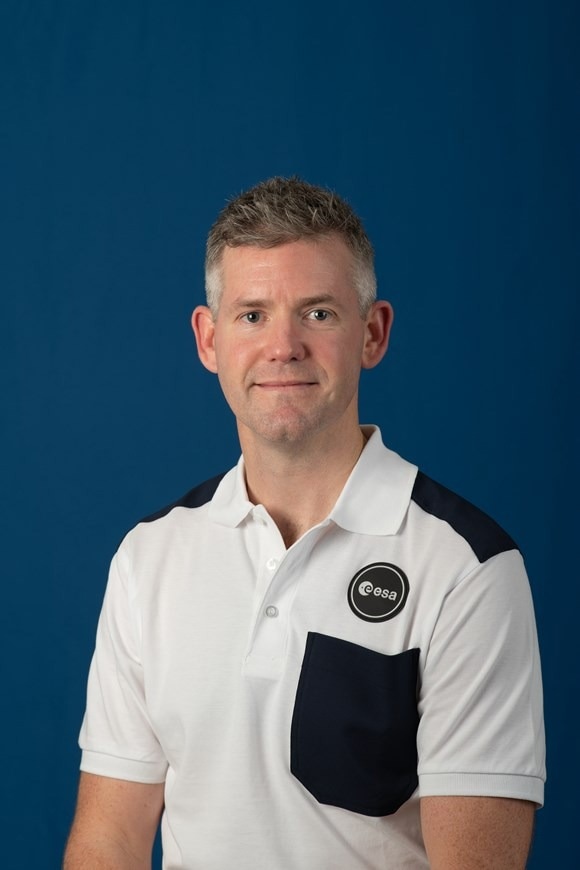The world’s first astronaut with a disability, former UK Paralympian, John McFall, has arrived in Germany to begin feasibility studies at the European Astronaut Centre.

Image Credit: ESA
John, a former NHS surgeon in Hampshire, joined the latest European Space Agency (ESA) astronaut cohort last year following a rigorous selection process and record UK Space Agency investment into ESA.
He will spend the next two years working with experts to identify how traditional equipment and facilities for astronaut life could be made more accessible and allow for a wider range of people to qualify for human spaceflight.
As part of the Fly! Feasibility Study, the 42-year-old father-of-three will undergo elements of astronaut training, such as sea survival and testing in hypobaric (low atmospheric pressure) environments. This will help ESA to assess the impact that being an amputee and wearing a prosthesis will have on the requirements for living and working in space, and test possible solutions to any problems.
John McFall said: “I’m a naturally curious person and I’m excited about the learning ahead, the science that will come out of it, and the fact that this is the first small step in a much bigger journey.
“While the feasibility study is bespoke to my own disability, this programme delivers a powerful message, which I hope will both broaden people’s appreciation of what people with disabilities can do, as well as inspire people with a range of disabilities about the opportunities available to them.
“My three children are really stoked to be moving to Germany and about the fact that their dad could one day go into space. It’s helping to engage them, especially my two daughters, with STEM learning, which is hugely important to me.”
John was selected alongside Career Astronaut Rosemary Coogan and Meganne Christian who became a member of the ESA Astronaut Reserve, in 2022. They were among the first astronauts to be unveiled by ESA since 2009.
Science and Technology Secretary, Chloe Smith said:
“John was inspirational as a British Paralympian, and I wish him all the success on his journey as he becomes the world’s first Paralympic astronaut – showing there is space for everyone in the industry.
“The UK is reaching for the stars in the realm of space innovation, with three brilliant British candidates handpicked for the Agency's prestigious astronaut cohort for the first time in over a decade – it is undeniable proof of our stellar global reputation in space leadership.”
Chief Executive at the UK Space Agency, Dr Paul Bate, said:
“We are thrilled to be supporting John’s journey as he takes on training and feasibility studies with ESA colleagues.
“John’s selection as the first ever astronaut with a physical disability is a landmark moment for the global space sector. It will help us discover new and more inclusive ways of working, demonstrating first-hand that space offers opportunities for everyone.
“We wish him all the best over the next two years and look forward to working closely with him.”
John was announced as ESA’s first ever astronaut candidate with a physical disability during the ESA Council of Ministers in November last year.
The government committed a record £1.84 billion during the meeting, which included £217 million towards the global exploration programme, supporting robotic missions to Mars and contributing to the Artemis Moon programme, including the Argonaut (European Large Logistics Lander), Gateway space station and commercial lunar communications systems.